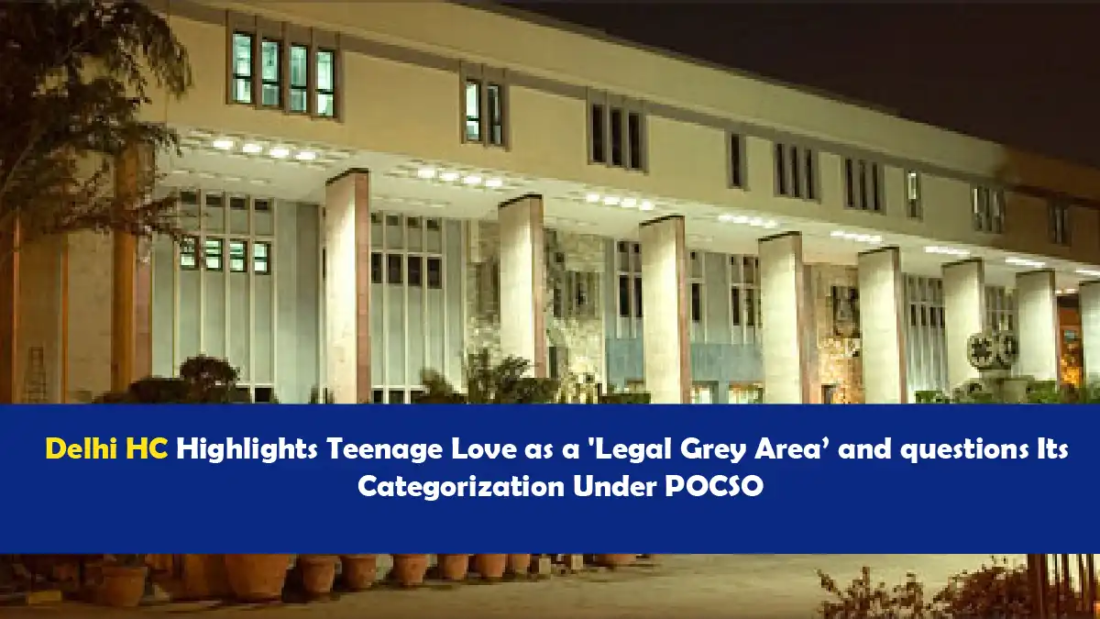Facts of the Case:
The petitioner sought regular bail in relation to FIR registered at Mundka Police Station for an alleged offence under Section 363 IPC (kidnapping). The FIR stemmed from a complaint lodged by the victim’s father, who reported that his eldest daughter, initially described as 19 years old but later confirmed to be around 17.5 years of age, went missing on 31.12.2021 after leaving home for school-related activities. The father later alleged that the petitioner had misled and abducted his daughter.
On 03.03.2022, both the petitioner and the victim were recovered in Delhi. The victim’s statement, recorded under Section 164 CrPC, revealed that she voluntarily accompanied the petitioner, her boyfriend, to Madhya Pradesh and Bihar. She initially denied any coercion. However, a subsequent statement made on 26.03.2024 presented a drastically different narrative, accusing the petitioner and his relatives of confining her, forcing her into marriage, and subjecting her to physical abuse.
The petitioner has been in custody since 19.04.2022. A chargesheet was filed against him for offences under Sections 363, 366 (abduction), 368 (wrongful confinement), 323 (causing hurt), 344 (wrongful confinement for ten or more days), 376 (rape), 506 (criminal intimidation), 120B (criminal conspiracy), 34 IPC (common intention), and Sections 6, 17, and 21 of the POCSO Act (Protection of Children from Sexual Offences Act).
Petitioner’s Arguments:
The petitioner contended that it was a consensual relationship, and the victim willingly accompanied him to Madhya Pradesh and Bihar. He argued that they returned to Delhi voluntarily after learning that the victim’s father had lodged a case. The petitioner further submitted that since the chargesheet had already been filed, he should be granted bail.
State’s and Victim’s Opposition:
The State and the victim’s counsel strongly opposed the bail plea, arguing that the petitioner had committed a serious and heinous crime. They emphasized that the potential sentence, if convicted, could be up to 20 years of imprisonment, raising concerns about the petitioner fleeing justice. They also expressed concerns about the petitioner influencing witnesses and threatening the victim if released on bail.
Court’s Observations:
The court noted the following:
At the time the victim left her home, she was 17 years and 2 months old, just shy of the age of majority (18 years). The court highlighted a pattern in cases involving young girls aged 17 or older eloping with boys, with the girls often changing their statements under pressure from their parents.
In this case, the victim’s initial statement indicated that she had willingly gone with the petitioner, but her second statement, made 23 days later, alleged confinement, coercion, and abuse.
The court also referenced several judgments, including Sahil v. State of NCT of Delhi (2024), Anant Janardhan Sunatkari v. State of Maharashtra (2021), and Jayantibhai Babulbhai Alani v. State of Gujarat (2018), which dealt with cases of consensual relationships involving minors and emphasized the importance of considering real-life nuances in such situations.
The court underscored that teenage relationships often fall into a legal grey area, particularly when the individuals involved are close to the age of majority. It was not commenting on whether an offence had been committed but was evaluating whether the petitioner, who was 20 years old at the time of the incident and is now 22, should continue to be held in custody. The court found that further detention would be detrimental to the petitioner’s future.
Court’s Order:
The court granted regular bail to the petitioner, subject to conditions. The court clarified that these observations were made only for the purpose of the bail application and not on the merits of the case. The bail application was disposed of accordingly.
 Cart is empty
Cart is empty 

